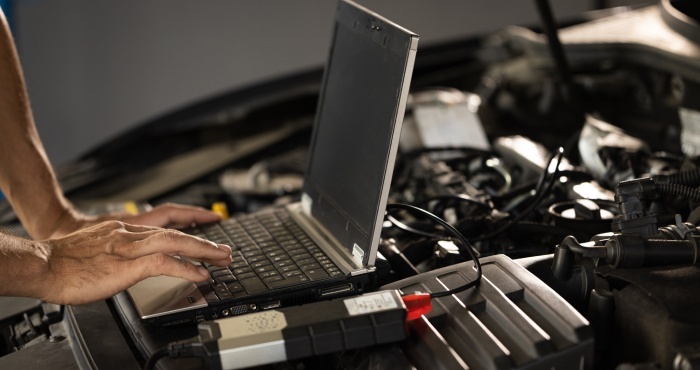Navigating the complexities of an engine failure lemon law claim in California can be a daunting task for consumers. The state’s lemon law, officially known as the Song-Beverly Consumer Warranty Act, is designed to protect buyers of new and used vehicles that experience significant defects, such as engine failures, that impair their use, value, or safety. Given the intricacies of the legal framework and the nuances involved in proving a lemon law claim, it is essential for consumers to be well-informed about their rights and the necessary steps to take should they find themselves facing an engine failure in their vehicle.
This guide aims to demystify the process, providing a comprehensive overview of the essential components of filing a claim, including eligibility criteria, documentation requirements, and potential remedies available under California law.
Understanding California Lemon Law
The Song-Beverly Consumer Warranty Act, commonly referred to as the California Lemon Law, safeguards buyers and lessees of faulty vehicles when manufacturers do not successfully address the defects after a reasonable number of repair attempts. This legislation is applicable to new vehicles and certified pre-owned vehicles that are still under manufacturer warranty, and in certain instances, it may also extend to used vehicles that retain coverage from the original factory warranty.
A vehicle can be deemed a “lemon” if it possesses a significant flaw that impacts its safety, functionality, or market value, and the manufacturer has been unable to resolve the problem after multiple attempts at repair.
Engine Failure and Lemon Law Eligibility
Experiencing engine failure is among the most serious issues a vehicle can face. Should your car encounter ongoing engine troubles that continue after several repair efforts, you might have a solid case under Lemon Law.
Common Engine Failure Issues Covered:
- Unexpected Engine Shutdowns: The engine can abruptly turn off while in motion, posing significant safety risks. This situation may result in a lack of control and a higher likelihood of accidents.
- Excessive Oil Use and Leaks: High oil consumption can lead to engine degradation and possible breakdowns. Ongoing leaks can incur expensive repairs and diminish overall performance.
- Frequent Overheating Issues: The engine tends to overheat regularly, even with proper maintenance practices. This condition can cause serious harm, such as distorted parts and mechanical failures.
- Recurring Check Engine Light: The check engine light remains illuminated despite several attempts at repair, indicating that there are unresolved problems. This could point to ongoing mechanical or electronic issues.
- Diminished Power and Acceleration Problems: The vehicle shows poor acceleration and a lack of power, which hampers its drivability, making it challenging to merge onto highways or climb inclines.
- Ongoing Engine Knocking or Unusual Noises: Abnormal knocking sounds or other strange noises may indicate internal damage or worn components. Neglecting these indicators could result in total engine failure.
Should your vehicle experience any of these problems during the warranty period and the manufacturer fails to deliver a permanent solution, you might qualify for compensation in accordance with the Lemon Law.
Steps to Take Before Filing a Lemon Law Claim
1. Document the Issue
The effectiveness of a Lemon Law claim is heavily dependent on comprehensive and precise documentation. It is vital to maintain meticulous records of all service visits, including repair orders and invoices that detail the issues reported, the repairs attempted, and the outcomes. Having service history that shows regular maintenance and compliance with the manufacturer’s recommendations can bolster your case, demonstrating that the defect was not a result of neglect.
Moreover, retaining copies of any communication with the manufacturer or dealer—such as emails, letters, or logs of phone conversations—can serve as critical evidence of persistent repair issues. Additionally, vehicle warranty details are important, as they confirm that attempts were made to address the problems while the vehicle was still covered. Systematically organizing these documents can greatly enhance your case and increase the likelihood of a favorable outcome.
2. Provide the Manufacturer a Reasonable Opportunity to Fix the Issue
According to California’s Lemon Law, a vehicle is deemed a “lemon” if the manufacturer or dealer does not adequately address major defects after a reasonable number of attempts at repair. Although the law does not define a precise number of attempts, it typically requires at least two for critical safety issues, such as engine failures that cause the vehicle to stall while in motion. For less severe but recurring engine problems, it may take four or more attempts before the vehicle can be classified as a lemon.
Moreover, if a vehicle has been in the shop for repairs for more than 30 cumulative days, it could qualify for a Lemon Law claim. This provision is designed to protect consumers from extended disruptions and safety hazards related to faulty vehicles. To support a successful claim, it is important to keep accurate records of all repair attempts and service history.
3. Request a Buyback or Replacement from the Manufacturer
Should your vehicle qualify under the Lemon Law, you have the option to officially request either a buyback or a replacement. A buyback entails the manufacturer reimbursing you for the original purchase price, after deducting a minor amount for mileage. Alternatively, a replacement means they are obligated to offer you a similar new vehicle.
To get started with this procedure, draft a letter addressed to the manufacturer that details the issues with your vehicle, its repair history, and what resolution you are seeking.
Filing a Lemon Law Claim
Seek Assistance from a Lemon Law Lawyer
While it’s not a requirement, reaching out to an experienced Lemon Law attorney in California can significantly improve your likelihood of winning your case. These legal professionals are adept at maneuvering through intricate legal frameworks and negotiating with vehicle manufacturers. Most operate on a no-win, no-fee basis, which means you won’t owe them anything unless they achieve a successful result for you. Their specialized knowledge can maximize your compensation or help you obtain a replacement vehicle.
Lodge a Complaint with the California Department of Consumer Affairs
The California Bureau of Automotive Repair (BAR) handles consumer complaints against car dealerships and repair services. Submitting a complaint may prompt the manufacturer to resolve your issues more swiftly. Additionally, the BAR can aid in settling conflicts related to vehicle defects or unsatisfactory repairs. Taking this step can bolster your case if you find it necessary to pursue legal action later on.
Explore Arbitration or Legal Recourse
Certain manufacturers provide arbitration services as a quicker and more cost-effective option than litigation. Nevertheless, the outcomes of arbitration may not always favor consumers and could restrict additional legal avenues. Should arbitration fail to address your problem, you have the option to file a lawsuit under California’s Lemon Law. Engaging in legal action can assist you in securing a refund, a replacement vehicle, or compensation for your faulty automobile.
Potential Outcomes of a Lemon Law Claim
If your Lemon Law claim is approved, one potential resolution is a buyback of the vehicle, wherein the manufacturer reimburses you for your expenses. This reimbursement covers your initial down payment, monthly payments, registration costs, and any outstanding loan amount. However, be aware that a usage fee might be applied based on the mileage accumulated prior to reporting the defect.
Another possibility is a replacement vehicle, where the manufacturer offers you a new car that matches the value and features of your original one. This option guarantees that you receive a vehicle free of defects without incurring financial losses. The replacement must align closely with the specifications of your initial purchase, providing an equitable solution.
Lastly, you could opt for cash compensation while retaining your current vehicle. This choice enables you to negotiate a settlement for the trouble and repairs without having to return the car. This can be advantageous if you wish to keep your vehicle despite its shortcomings.
Success Stories: Lemon Law Claims for Engine Failures
Case 1: Turbocharger Malfunction Results in Full Refund
John, a resident of Los Angeles, acquired a 2022 luxury sedan that encountered significant engine troubles just months after purchase. The turbocharger repeatedly malfunctioned, leading to abrupt power loss. Despite four attempts at repair, the issue remained unresolved. With assistance from a Lemon Law lawyer, John secured a complete refund, which included all payments made for the car and coverage for his attorney’s fees by the manufacturer.
Case 2: SUV Owner Achieves Buyback Due to Ongoing Stalling Issues
Lisa, living in San Diego, purchased a new SUV that experienced unpredictable stalling, particularly while driving on the highway. She brought the vehicle in for repairs five times, but the dealership was unable to pinpoint the underlying issue. Her lawyer submitted a Lemon Law claim, and following arbitration, the manufacturer consented to buy back the vehicle, reimbursing her for the initial purchase price along with associated costs.
A malfunctioning engine is a significant issue that can threaten your vehicle’s safety, dependability, and worth. Should you end up with a malfunctioning car, the California Lemon Law offers robust safeguards to help you secure appropriate compensation. To effectively navigate this process, keep detailed records of repairs, allow the manufacturer an opportunity to resolve the issue, and seek legal assistance if necessary, so you can achieve a satisfactory outcome.








